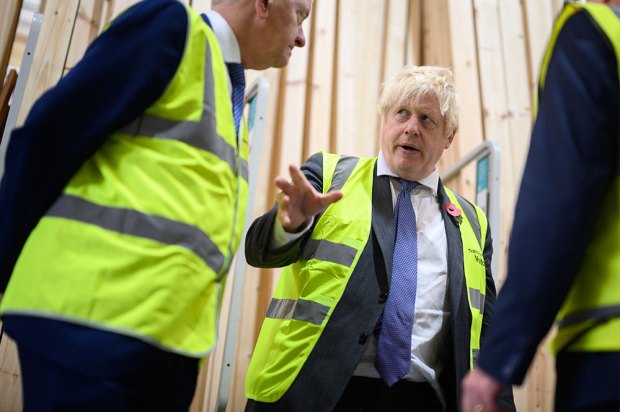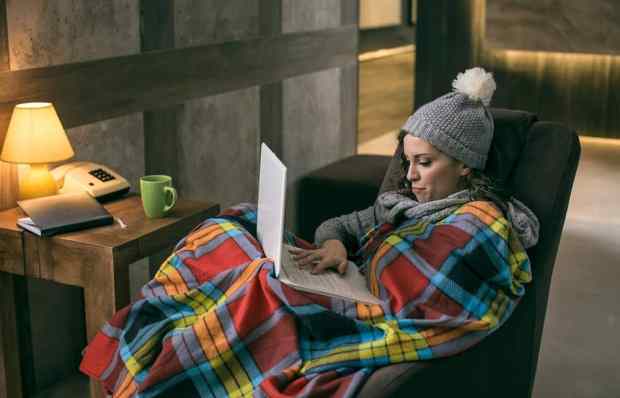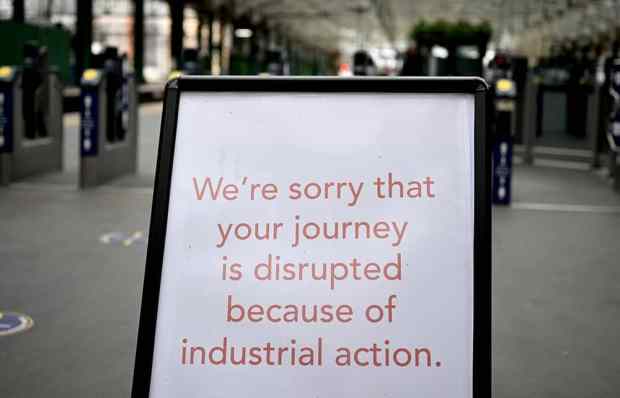The Financial Times carried a curious story at the weekend about ‘the secretive process to elect the Lord Mayor of London’ being ‘thrown into disarray’ by ‘objections from some City leaders’ to the candidacy, for 2022, of Nick Lyons — who has just been elected as one of the City’s two sheriffs but who happens to be an Irish citizen. Lyons’s unnamed opposers say City rules have always required the Lord Mayor to be a British citizen. The City Corporation, the Square Mile’s local authority, says it has legal advice to the effect that Lyons is not disqualified, EU citizens being permitted to stand in UK local elections. The FT omitted to mention Vincent Keaveny, the senior alderman who is expected to succeed as Lord Mayor this autumn and who describes himself as ‘a proud Irishman’ with dual citizenship.
You may think City governance is a medieval closed-shop and it really doesn’t matter who wears the ceremonial robes from one year to the next. Or you may think that our financial services hub needs high-profile ambassadors who know what they’re talking about in the continuing struggle with EU authorities intent on poaching London business and keeping UK firms out of their markets. Lyons — a former investment banker who specialised in mergers and acquisitions for banks and insurers and now sits on a clutch of boards in the sector — is eminently suitable for that role; his passport might even be a negotiating advantage. I think we should be told why some of his fellow aldermen are trying to do him down.
More Morrisons bids
The market was expecting more bidders for Morrisons supermarket chain, following a first 230p-per-share shot from New York private equity firm Clayton, Dubilier & Rice. Sure enough, a consortium led by the Japanese-owned Fortress investment group and backed by US billionaire Charles Koch lobbed in 252p, which Morrisons’ board agreed to accept. Meanwhile another American player, Apollo Global Management, said it was also ‘evaluating a possible offer’.
In anticipation of at least one more bid, the shares jumped to 266p and some pundits think they could hit £3, almost double last year’s low. One leading institutional investor, Legal & General, has warned against allowing Morrisons to be taken over for ‘the wrong reasons’ — namely, to gouge profits out of its property portfolio — but it’s the way of the world that if the offer’s rich enough, shareholders will set scruples aside, take the money and run.
Electric switch
The big switch to electric vehicle manufacturing continues apace. Vauxhall — now part of Stellantis, the multinational that also owns Peugeot, Fiat and Chrysler — plans to build electric vans at its Ellesmere Port plant, previously seen as one of UK manufacturing’s potential dead ducks. Nissan, with a Chinese partner called Envision, last week committed to building a giant battery factory at its Sunderland site, creating up to 6,200 jobs and solving the problem that UK-made electric cars such as Nissan’s Leaf will soon need UK- or EU-made batteries to meet EU import rules. News of another big battery venture is awaited from Jaguar Land Rover, which might also team up with Envision.
If the production of Covid vaccines by Big Pharma set a world record for industrial adaptability, the automotive sector’s pivot to electric power within a decade will at this pace come a close second. All it needs now is for governments to meet promises to provide the vital networks of plug-in points.
Living over the shop
What a good idea for John Lewis to build 10,000 rental homes. The proposal is a bold diversification for a struggling department-store business but fits neatly with what the employee-owned partnership’s strategy director Nina Bhatia calls its ‘social purpose’. The first 7,000 units, from studio flats to four-bedroom houses, will be built on land already owned by the group that includes Waitrose supermarkets — and will bring new community life to urban and edge-of-town areas that would otherwise be increasingly desolate, perhaps setting a trend for other retail giants with surplus store and warehouse space. Selling points for potential tenants will include on-site Waitrose convenience stores and John Lewis furnishings. If Carrie Johnson can overcome her distaste for the latter, this could be the affordable solution our cash-strapped Prime Minister needs when the day comes to move his family out of Downing Street.
Down with the kids
A last word on dress codes. For lunch with a City chief, I wear my last surviving dark blue single-breasted suit with pale blue shirt and silk polka-dot tie borrowed from the box of spares kept by a West End club where most members still wear them. But my host is tieless, in an open-necked shirt with fancy stitching that might once have identified him as an advertising man or music promoter.
The need to dress down, he explains, is partly a function of current hectic levels of business. Not for his own comfort, that is, but to be down with the kids — to offer cultural reassurance to millennial junior executives who are essential for deal execution but hard to replace in today’s tight recruitment market. His HR people advise him to wear jeans for meetings with youngsters who are so hypersensitive that even the wrong wardrobe choice can be taken as a ‘micro-aggression’.
I think back to 1975 when, as a scruffy summer intern at Schroders in Cheapside, I was called up to see the chairman, the 13th Earl of Airlie. His elegant uniform was a dark blue single-breasted suit with pale blue shirt and silk polka-dot tie. I stood to attention in front of his desk; he invited me to return the next year as a graduate trainee. It could hardly have been a more patriarchal encounter, but it worked fine for me.
Got something to add? Join the discussion and comment below.
Get 10 issues for just $10
Subscribe to The Spectator Australia today for the next 10 magazine issues, plus full online access, for just $10.
You might disagree with half of it, but you’ll enjoy reading all of it. Try your first month for free, then just $2 a week for the remainder of your first year.















Comments
Don't miss out
Join the conversation with other Spectator Australia readers. Subscribe to leave a comment.
SUBSCRIBEAlready a subscriber? Log in